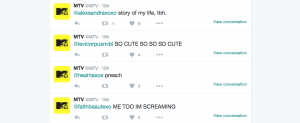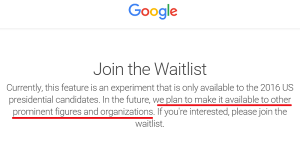
I have a new baby.
It’s about two months old, has a compelling name and is loved by me, my family, and close friends. Of course I’m talking about the new sci-fi novel: Fear The Liberator: A Space Opera Novel.
I self-published on Amazon. I worked sweats and fears on that darling, had a professional editor and published it with the best intentions.
And for a while, it was good. Sales trickled in, up to 16 per day, as well as many burrows.
I was high-fiving the universe after having launched a book that finally didn’t tank like my two previous books. And then, the first one-star review crept in and vaporized my book like an orbital beam cannon. The critic wrote a 700 word long review that lynched every part of my story, from the characters, to the story and writing style.
I’m not gonna lie, I was floored.
I knew not everyone was going to like my story, but I didn’t expect a hardcore takedown like that. Still, the only way forward is to become better tomorrow than today, so after moping for a day, I collected my courage and soaked up the positive lessons from the review.
Here my top lessons for dealing with this crushing review.
1) Separate style from substance
This is a little tip I’ve learned from a fellow indie writer who got bashed on a crime thriller for getting the detective work wrong.
Criticism of substance means a reviewer points out errors and inaccuracies in your content. For example, a reader told me that my science was askew — there’s a line in the book where the protagonist, a spaceship pilot, watches supernovas explode from his home planet’s sky. The reviewer said it was scientifically impossible — so I changed that line. The book is better and more believable by changing that little aspect.
That’s also legitimate criticism, because as a sci-fi writer, I have to get at least the basics right. But then there’s criticism of style, and that’s when opinions will always differ.
Another critic poked at my writing style. He said it was too simplistic and complained about the “disgusting phrasing.” Now that’s a style issue which I dare not rectify, because it’s part of my personality. When I change my Mars Dorianism, I’m selling out the folks who love my style. In that case, the reader was just a bad fit for my book.
So, ask yourself next time: is the reader criticizing the substance of your work, or your style? If you can differentiate between the two, your writing will improve but you can also stay true to yourself. That’s a win-win in my book.
2) Don’t argue with (harsh) critics
I once read that serial entrepreneur Tim Ferriss, author of the bestseller The 4-Hour Workweek, once commented on every negative review he received for his first book. He soon found himself entangled in heated online debates, with critics getting furious about his replies and slamming him on other online outlets. After the first book launch, he vowed to never argue with these people again.
When my first negative reviews battered my profile, I was itching to jump in and justify my position, ready to argue with reviewers who bashed my style.
But thanks to Tim’s wisdom, I didn’t. I don’t know why, but in the online world, people are addicts to their opinions (and that sometimes is true for me). They have pride posting their reviews and if you argue with them, they take it as a personal insult and will feverishly defend their positions, much to the content creator’s dismay. Your work should speak for itself. It doesn’t need a creator defending it.
As Michelangelo famously said, “criticize by creating.” That’s my motto from now on.
3) Ignore the personal attacks. Use them to fuel your writing
There’s a lot fire going on personal attacks on the content creator nowadays. Best-selling writer Anne Rice, famous for the Interview with the Vampire series, even launched a website and a Twitter/Facebook movement to combat vicious one-star reviews that assaulted the author rather than the actual content.
Unfortunately, we’re going to see more of that.
In the Western World, our skins are nano-layer thin. And with online lynch mobs being all the rage nowadays, everyone who shares different, dare I say — unpopular — content, will be a possible target for self-righteous hate groups that doxx, harass and try to censor/ban you from social media networks.
When I get personally attacked I know the flak has nothing to do with me as a person and everything with the critic’s personal problems. Thus, I will not feel miserable or let the person stop me from creating content that I want to share with the world. Constructive criticism is the only kind I will ever listen to.
Always separate content criticism from creator criticism.
Content creators want to produce their best works and enrich people’s lives with their ideas. Finding the balance between justified criticism and slander is one of the hardest skills to learn.
What’s your number one tip with dealing online criticism? Share your voice with the world.
(178)
Report Post







